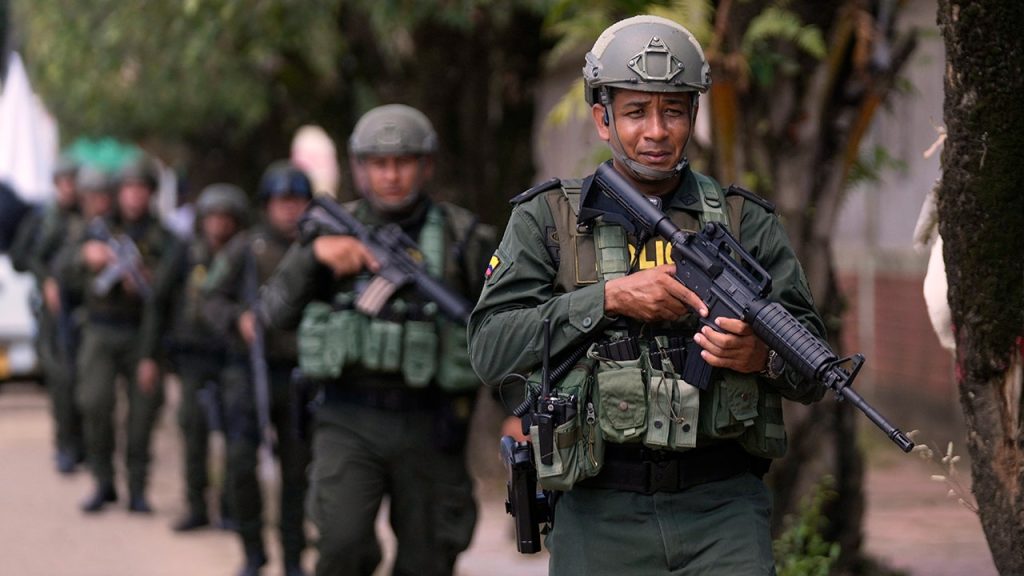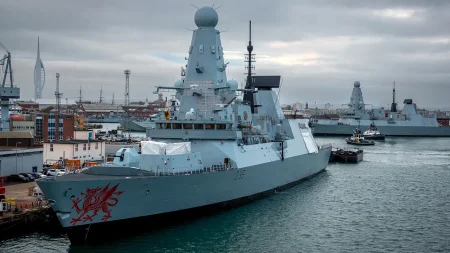Colombia’s President Gustavo Petro has invoked emergency powers in the Catatumbo region, a coca-growing area bordering Venezuela, in response to a deadly escalation of violence between rival rebel groups. This decree grants Petro sweeping authority for 90 days, enabling him to implement measures such as curfews and traffic restrictions without typical congressional approval, effectively overriding certain civil liberties. This action, unprecedented in over a decade, underscores the gravity of the situation and the Colombian government’s struggle to maintain control in this historically volatile region. The catalyst for this drastic measure is a fierce turf war between the National Liberation Army (ELN) and dissident factions of the Revolutionary Armed Forces of Colombia (FARC), which has claimed at least 80 lives and displaced an estimated 36,000 people in recent days. The conflict highlights the fragile peace process and the persistent challenges facing Colombia’s efforts to quell decades of internal strife.
Petro’s decision to invoke emergency powers has sparked a polarized reaction. Conservative opponents criticize the move as an unconstitutional power grab, while some activists welcome it as a potential catalyst for much-needed investment in infrastructure, healthcare, and education in the neglected Catatumbo region. They argue that the government’s historical neglect of the region has created a vacuum filled by armed groups, perpetuating the cycle of violence. The decree marks a significant shift in Petro’s approach to the peace process, signaling a move away from negotiation and towards a more assertive stance against the armed groups operating in the region. The unfolding events in Catatumbo are a stark reminder of the deep-rooted complexities of the Colombian conflict and the precarious nature of peacebuilding efforts.
The escalating conflict in Catatumbo is not confined to Colombia’s borders. The violence has spilled over into neighboring Venezuela, adding another layer of complexity to the crisis. Displaced civilians are seeking refuge across the border, raising concerns about regional stability and the potential for further escalation. The involvement of Venezuela in the conflict adds to the political intrigue, especially given its role as a sponsor of the peace talks between the Colombian government and the ELN. The current whereabouts of the ELN peace negotiators remain unknown, with Cuba, another sponsor of the talks, confirming they are not on the island. Speculation abounds that they may be seeking refuge in Venezuela, further complicating the dynamics of the conflict and the prospects for a peaceful resolution.
Petro’s decision to reactivate arrest orders for 31 top ELN commanders, coupled with the suspension of peace talks, reflects a hardening stance against the rebel group. This marks a significant departure from his initial approach, which prioritized dialogue and negotiation. The breakdown of the peace process underscores the difficulties in achieving a lasting resolution to the decades-long conflict. The escalating violence in Catatumbo and the subsequent emergency decree have created a tense and uncertain environment, with the potential for further escalation. The interplay of various actors, including the Colombian government, the ELN, FARC dissidents, and Venezuela, makes the situation highly volatile and unpredictable.
The conflict in Catatumbo reveals the enduring legacy of the decades-long armed conflict in Colombia. Despite the 2016 peace agreement with the FARC, which significantly reduced violence in many parts of the country, dissident groups and other armed actors continue to operate in remote areas, vying for control of illicit economies and challenging state authority. The Catatumbo region, with its strategic location along the Venezuelan border and its lucrative coca production, has become a particularly volatile hotspot. The ongoing conflict highlights the challenges of consolidating peace in the face of deeply entrenched criminal networks and the complex interplay of local, national, and regional dynamics.
The situation in Catatumbo underscores the fragility of peacebuilding efforts in post-conflict contexts. The resurgence of violence, displacement of communities, and breakdown of negotiations underscore the need for comprehensive and sustained strategies to address the root causes of conflict, including poverty, inequality, and lack of state presence. The challenges facing the Colombian government in restoring order and ensuring security in the region highlight the complexities of navigating the transition from armed conflict to peace and the ongoing need for international support and cooperation. The emergency decree, while a necessary response to the immediate crisis, also raises concerns about the potential long-term implications for human rights and democratic governance. The situation requires a delicate balance between addressing security concerns and protecting fundamental freedoms.














